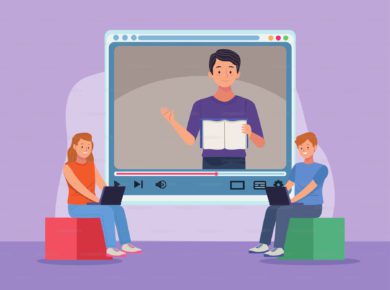One of the most amazing approaches in teaching is a simulated teaching strategy. This is a very innovative method to enhance learning experience. But what is it, and how can it be effectively incorporated into the classroom environment or training environment? In this blog, we will discuss everything you need to know about simulation teaching method.
Whether you’re an educator ready to innovate or a curious learner, this strategy will change the classroom experience for your students. Let’s explore!
What is a simulated teaching strategy?
Simulated teaching strategy is a type of instruction strategy that uses a controlled, artificial environment or situation to mimic real-life scenarios. Simulation as teaching strategy has a purpose to give learners a safe space in which they can practice, make mistakes, and learn from them without fear of consequences in the real world.
(Suggested: Different Teaching Methodologies)
This strategy has also been used in a variety of disciplines, including aviation, medical, business, and education.
Are you passionate about teaching? Let’s connect and take your teaching business to new heights together!
Benefits of simulated teaching strategy
- Provides a risk-free environment for learners to practice skills as well as make decisions. This safety zone encourages them to try new things and learn from their errors.
- A simulated teaching strategy provides experiential learning by allowing students to apply theoretical information realistically.
- The instant feedback also allows learners to understand and correct their errors on the spot.
- Simulation teaching methods increase engagement because simulations are interactive, they are more engaging than traditional training techniques.
- This method of teaching can imitate real-life circumstances, giving learners the skills and confidence to deal with similar problems in the real world.
Features of simulated teaching
- Simulation teaching methods are a great way to reduce training costs as it does not require any physical resources.
- It offers flexible timings where teachers can practice anytime and anywhere along with adapting to their schedules.
- This form of teaching utilizes technology to have a modern approach to the teacher training process.
- In simulated teaching, teachers can have instant feedback to help improve their methods.
- Simulation as teaching strategy also allows teachers to practice lessons in a risk-free, virtual environment.
Implementing simulated teaching
- Before introducing this teaching style, it is essential to understand what you want the students to accomplish. Are you looking to increase decision-making, technical abilities, or teamwork? By analyzing your objectives, it will become easier for you to implement this method in the classroom.
- The tool can differ depending on the subject and objectives. It could be a high-tech virtual reality setup, a computer program, or even a simple role-playing game. There are many online teaching tools that can help you to introduce this method effectively in the classroom.
The tools that can be used to implement this teaching method are; computers based simulations, role playing, physical models, virtual reality etc.
- Before beginning the simulation teaching method, ensure that students understand the objectives, rules, and expectations. This preparation will allow them to participate in the activity more effectively.
- Your role as a teacher is to guide and facilitate. Allow the students to explore the simulation, make decisions, and find outcomes.
- Discussions after simulations are important. Discuss the results, blunders, and lessons learnt. This reflection contributes to the reinforcement of the learning objectives.
Conclusion
Simulation as teaching strategy, when done right, can provide a rich, engaging, and effective learning experience. It bridges the gap between theoretical knowledge and real-world application, preparing students for the challenges they will face outside the classroom. As technology continues to advance, the possibilities for simulated teaching will only expand, making it an exciting area for educators to explore and implement.
Simulated Teaching Strategy FAQs
A1. In simulated teaching strategy simulation tools as well as techniques are used to recreate real-world situations for instructional purposes.
A2. Traditional teaching methods usually involve direct instruction, reading, and passive learning whereas, simulated teaching strategy is interactive and experiential that mainly focuses on active participation and hands-on practice
A3. Tools like computer-based software, virtual reality headsets, physical mannequins, role-playing scenarios as well as interactive whiteboards etc. can be used.
A4. Start by identifying areas where hands-on practice is essential. Also select the appropriate simulation tool, develop relevant scenarios, and align them with your learning objectives.




